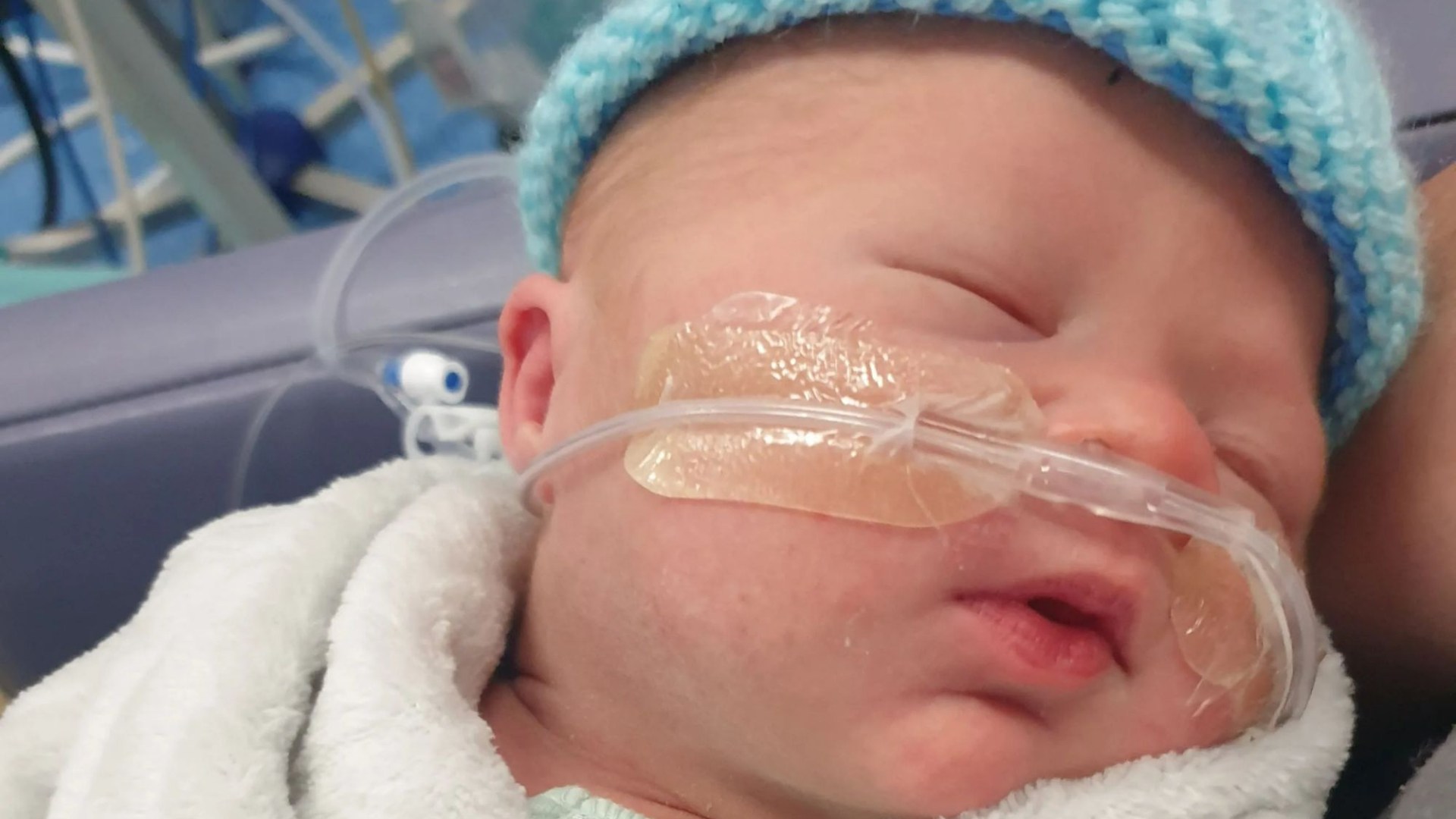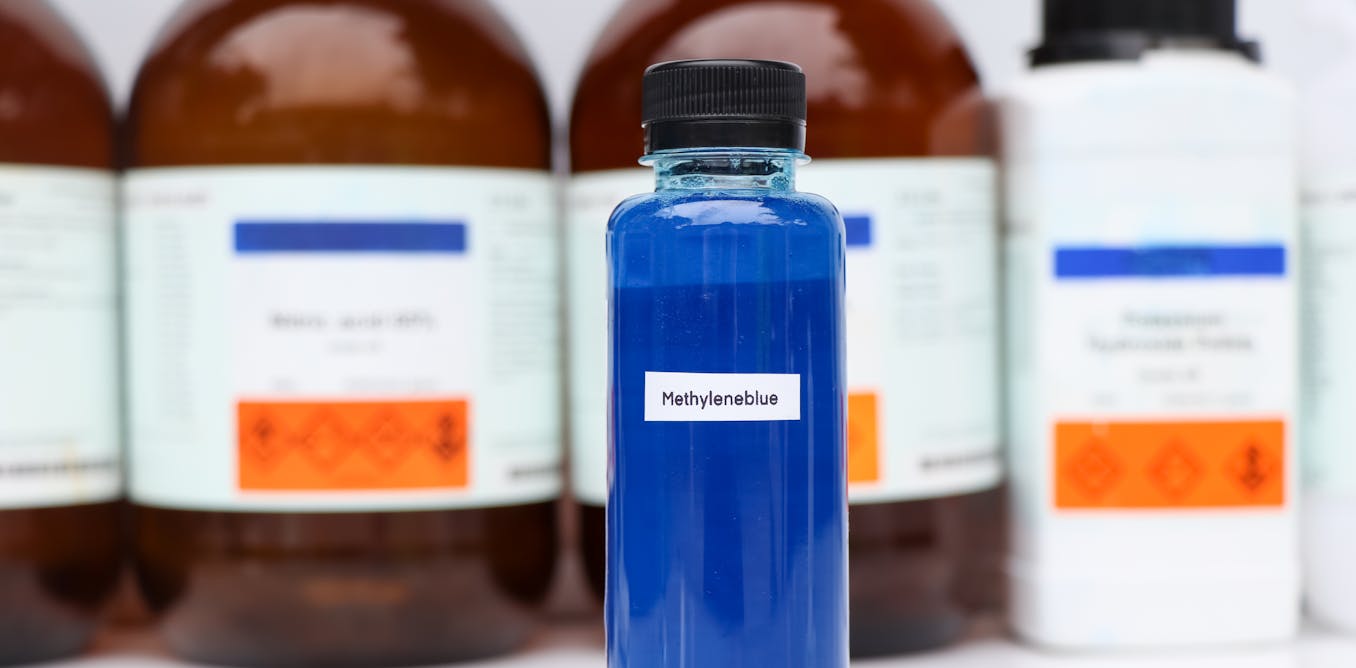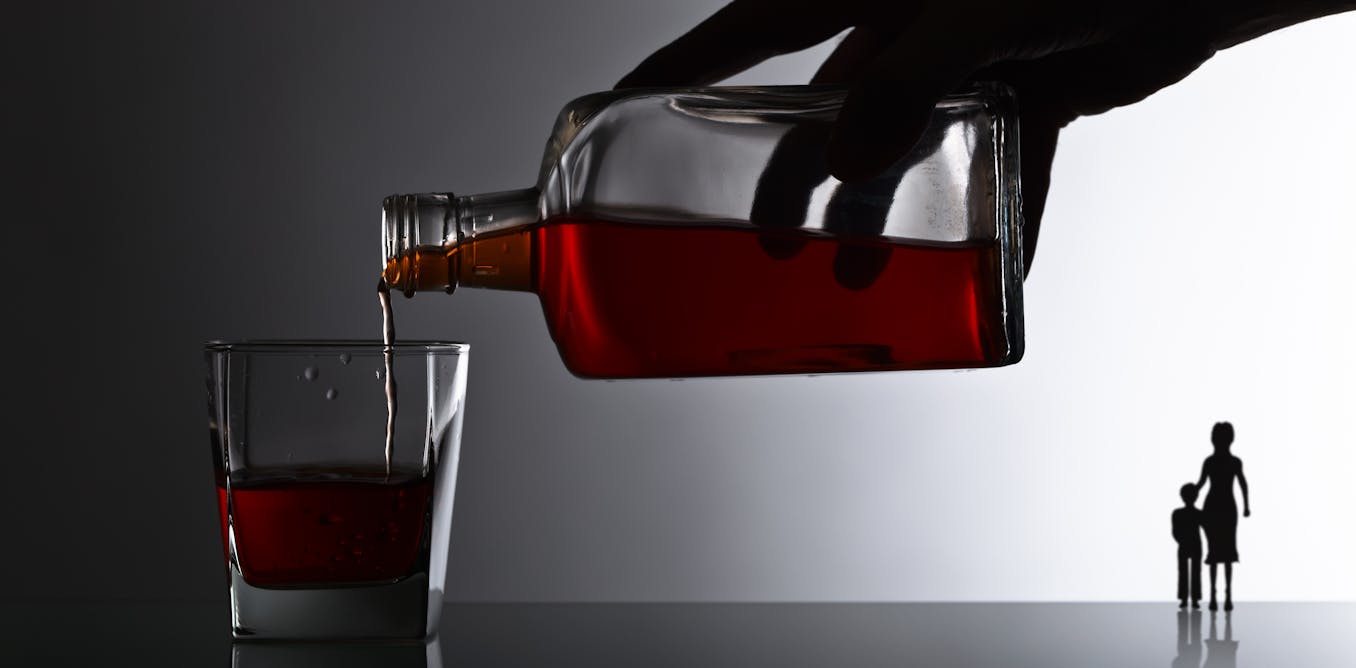A MUM says her baby is facing his first Christmas in hospital after nearly being killed by a common cold – as she urges other parents to protect their kids.
Jayne Carlton, 45, noticed her now five-month-old son Elijah Carlton suffering with cold-like symptoms and a shortness of breath last month.
8

8

8
At first, the mum-of-three believed her tiny tot had caught a common cold but when his symptoms persisted for a week, she took him to the GP for a check-up.
After being directed to Hull Royal Infirmary, Elijah was prescribed a five-day course of antibiotics and sent home.
Unfortunately, the mu said the medication didn’t work and Elijah’s symptoms worsened to the point where she rushed him back to hospital on November 19.
This is when her newborn was diagnosed with respiratory syncytial virus (RSV) via a blood test and transported to Leeds General Infirmary for further treatment.
Heartbreaking photos show baby Elijah linked up to tubes in an incubator as he was prepared to be transported to the next hospital.
RSV is a very common cause of coughs and colds that most babies get at least once before they reach the age of two, and most infections usually get better on their own.
Symptoms tend to include a runny or blocked nose, a cough, sneezing, tiredness and a high temperature.
However, infants and adults with weakened immune systems or long-term lung or heart conditions have a higher risk of getting seriously ill from RSV.
The common bug can trigger infections such a s pneumonia or bronchiolitis and may also cause a shortness of breath, wheezing, confusion in older adults and difficulty feeding in babies.
Young children deemed “high risk” may be given a vaccine each winter to help reduce the risk of them developing a serious illness after contracting RSV.
Elijah was born with Down syndrome and a “severe” heart condition, which Jayne has now discovered made him eligible for the RSV vaccine – but the mum claims this was never offered to him.
While her son is slowly getting better each day, Elijah sadly caught Covid in hospital too and at one point Jayne says she was told by doctors her son wasn’t going to make it.
She is now warning other parents to ensure their kids are up-to-date with their vaccinations so their children don’t end up in hospital.
Jayne, from Hull in East Riding of Yorkshire, said: “Elijah had a three-month check-up at Hull Royal Hospital and his heart condition had gone from severe to moderate. He was doing so well.

8

8
“He had a bit of a cold and because of his heart condition he gets out of breath anyway, so I put it down to just being a common cold at this point.
“I took him to the doctors after a week as he wasn’t getting any better.
“We were told to go to the hospital to get him some antibiotics as his oxygen levels were a bit low and they thought it was viral.
It got to a point where they told me they weren’t sure if he would pull through. It was horrendous and the worst thing anyone ever has to hear
Jayne Carlton
“We’d been back to the doctors after he had his antibiotics and the doctor said it would just take time to get better and they couldn’t hear anything on his chest.
“In the morning he was really out of breath so I rushed him to the hospital where we found out his oxygen levels were at 60 per cent.
“At this point I was terrified. They did blood tests and the practitioner had to put him on the ventilator straight away.
Symptoms of RSV
PEOPLE commonly show symptoms of the virus four to six days after being infected.
Signs include:
- Runny nose
- Decrease in appetite
- Coughing
- Sneezing
- Fever
- Wheezing
But symptoms can be much more subtle in very young babies, including irritability, decreased activity and breathing difficulties.
Most children will have had an RSV infection by their second birthday.
It can cause a condition called bronchiolitis in babies and young children.
Symptoms of bronchiolitis in very young infants include:
- Refusal to breastfeed or bottle-feed
- Breathing more quickly and noisily (wheezing)
- Seeming very tired, upset or inactive
- Signs of dehydration – lack of tears when crying, little or no urine in their nappy for six hours, and cool, dry skin
Source: CDC, Asthma + Lung UK
“The blood tests came back and said he had RSV. The RSV was so severe it was putting a lot of stress on his heart and was affecting his lungs too.
“At Leeds they were working non-stop to get him stabilised. The first couple of days he started to improve and then he contracted Covid while he was here and this sent him backwards in his progress.
“It got to a point where they told me they weren’t sure if he would pull through.
“It was horrendous and the worst thing anyone ever has to hear.”
Protect your babies
Jayne says her son’s other health conditions caused her son to become so ill after contracting the respiratory virus, rather than it just presenting as a common cold.
Along with his Down syndrome, his heart condition – which causes problems with his lungs due to a leaking heart valve – made him to struggle to fight off the RSV without medical attention.
The food retail assistant is now encouraging parents with “high risk” babies to ensure they get extra immunisations against viruses such as RSV alongside their routine infant vaccines too.
Jayne said: “I would say to other parents make sure your children are up-to-date with all their vaccines and if they are considered ‘high risk’ and there are other vaccines they can get, make sure they have these too.

8

8
“I know people are wary about vaccines but in my opinion it is better for them to have them than to have to go through what we’ve gone through in the last four weeks.
“I believe that if he had had the RSV vaccine he wouldn’t have been in this state.
“I think he still could have caught RSV but he wouldn’t be this bad and would have been able to get over it.”
The RSV vaccine is now also being offered to pregnant women in England from 28 weeks onwards, to pass on protection to babies after they’re born.
‘Heartbreaking’ first Christmas
This week, Jayne is hopeful Elijah will have his breathing tube removed as he makes progress in getting better.
Despite this, she has been told her baby will have to spend his first Christmas in hospital to ensure he is fully recovered to come home in the new year.
Jayne said: “[In hospital], he was sedated at first to try and help his body heal. He is now on mild sedation so he will wake up at points but then fall back to sleep.
“It’s been heartbreaking. He is going to have to spend his first Christmas in hospital.
“I had never heard of RSV before. The doctors said it was something getting more and more common.
Most recent RSV stats
Recent data released by the UK Health Security Agency (UKHSA) shows that RSV is circulating at low levels, having decreased in recent weeks.
Emergency department attendances for acute bronchiolitis decreased too between December 9 and 15.
And overall hospital admissions for decreased to 2.81 per 100,000 compared with 3.22 per 100,000 in the previous week.
But data shows that flu cases and hospitalisations are surging ahead of Christmas.
Dr Mary Ramsay, director of public health programmes at the UK Health Security Agency, said: “Flu cases and hospitalisations are continuing to increase this week.”
Though the national booking system for flu vaccines has now closed, eligible people can get the vaccine through GPs and pharmacies during their festive opening hours.
“There are other ways you can protect friends and family over the holiday season,” Dr Ramsay adds.
If you are showing symptoms of flu or COVID-19 such as a high temperature, cough and feeling tired and achy, try to limit your contact with others, especially those who are vulnerable.
“Washing your hands regularly and using tissues can reduce the spread of respiratory illnesses.”
“When I took him to A&E the consultant asked why he hadn’t been given the vaccine and I said it’s because I didn’t know about it.
“The consultant said he should have received it. All I want now is for my son to get better.
“Considering how he was three weeks ago when they said he wasn’t going to make it, he has fought every step of the way.”
NHS England were unable to comment on if Elijah was eligible however said that pregnant women, people aged 75 to 79 and some babies who are at high risk from RSV during the winter season are offered a course of injections, if clinically appropriate.
Hull University Teaching Hospitals NHS Trust have been contacted for comment.

8




